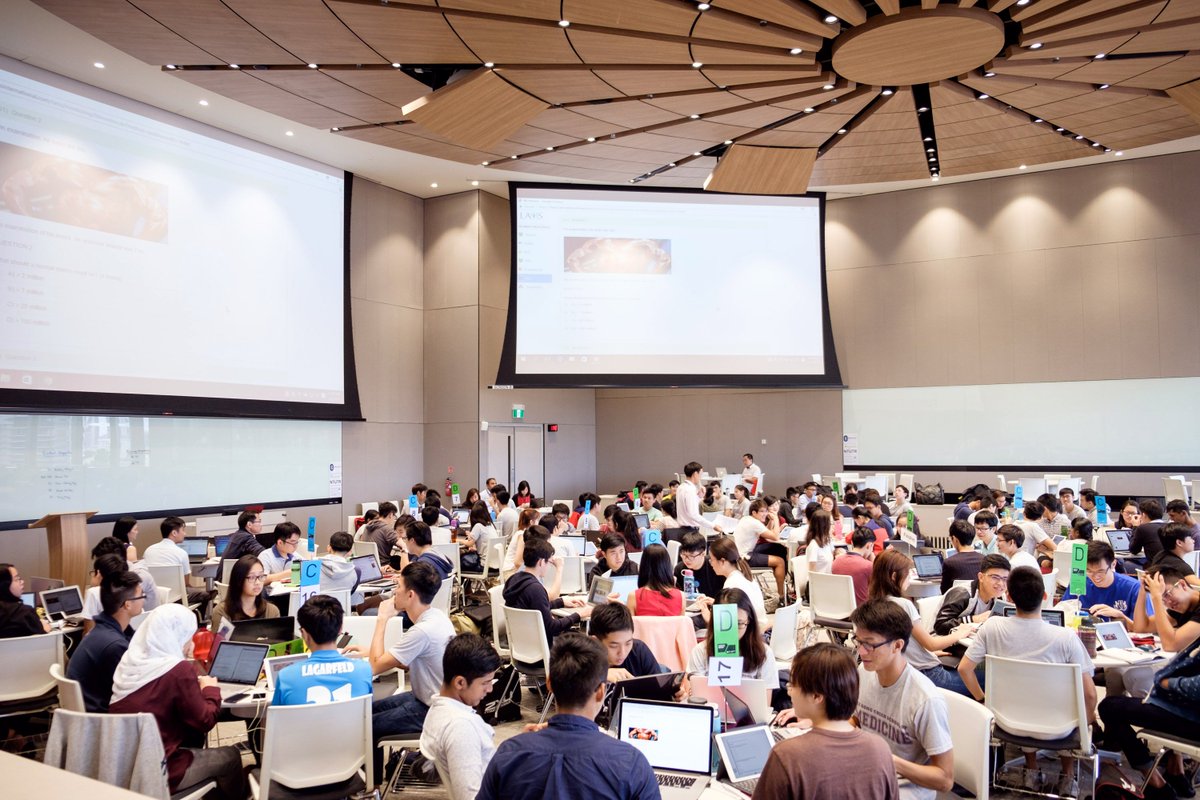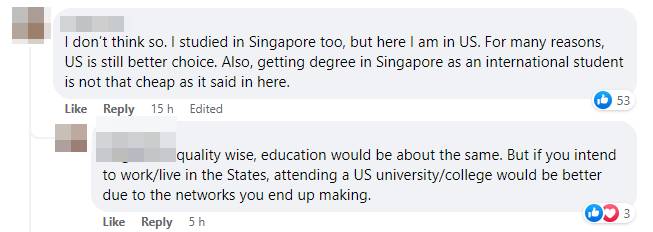NTU Graduate Student From US Chose To Study In Singapore As It’s Cheaper
For many international students, getting a degree in Singapore can be far cheaper than what they would get elsewhere, especially in the United States (US).
According to an essay by an American student who enrolled at the S. Rajaratnam School of International Studies (RSIS) in Nanyang Technological University (NTU), he pays a fraction of what he would in an American university.
He also gets diverse experiences he wouldn’t get back home.
Many have applauded his move, though others say a degree from Singapore may not be as accepted as one from the US.
36-year-old pursues NTU graduate degree
The as-told-to essay published on Insider is by James Guardino, a 36-year-old graduate student.
He describes how after moving to Singapore in 2012 as a facultative reinsurance broker, he decided to return to school in 2021.
However, after settling a hefty student debt from his time studying at Temple University, Mr Guardino wasn’t keen on spending even more money for graduate school.
He thus decided to enrol for a Master of Science degree in international political economy part-time.

Source: NTU
The program reportedly costs S$9,950 for Singapore citizens and permanent residents, which works out to US$7,000.
However, an equivalent degree in the US would cost US$46,900 (S$62,717) a year.
Affordability a key factor
Mr Guardino is a permanent resident as of 2020, having married his Singaporean wife in 2018 and settled down here after.
“There’s a big difference in the affordability of college in the US and Singapore,” he said. “When I went back to school, cost was a big factor that influenced my decision to attend a university in the city-state.”
With additional subsidies for his graduate studies here, he was better able to afford to return to school.
He considered enrolling in an online or a remote graduate degree from several universities in the US, but that would have set him back at least US$30,000 (S$40,117).
He felt this was unrealistic especially since he and his wife were looking to start a family.
Enjoys quality of life & experience in Singapore
Mr Guardino also mentions that he enjoys the quality of life in Singapore a lot more than in the US.
“Living in Singapore felt more modern and vibrant — things were more efficient, and the public transport was second to none,” he said. “I stayed because Singapore was exciting and full of possibilities.”
Though there are difficulties juggling a full-time job with graduate studies, Mr Guardino finds that learning is self-directed at RSIS. This has apparently helped him transition from being a broker to an underwriter.
He is also appreciative of the people he gets to meet as an American studying in Singapore, as well as learning from them.

Source: @NTUsg on Twitter
“As an American, I’ve found a lot of value in coming to Singapore and attending graduate school,” he professed. “The US has fantastic universities, but being here has helped me better understand other cultures.”
Ending off, Mr Guardino said he’s thankful that many students in Singapore can get grants and financial aid. This convenience has allowed him and his wife to build a future together with a strong foundation.
Comments largely supportive
Though many comments applauded Mr Guardino’s move, others were more sceptical.
For those who plan to live and study in the US, attending an American university would probably be a better choice, as one comment noted.

Source: Facebook
Others asked if a degree from NTU would be accepted in the US.

Source: Facebook
Though school fees at American universities may be high and you may have to shoulder student debt, you may gain experiences that you wouldn’t get elsewhere.
The same goes for studying in Singapore. Indeed, there are arguments to be made both for and against each option. At the end of the day, the decision depends on our personal preferences and the subsequent paths we want to take.
For Mr Guardino, who has chosen to settle down in Singapore, being an NTU graduate student makes more sense.
Have news you must share? Get in touch with us via email at news@mustsharenews.com.
Featured image adapted from NTU.








